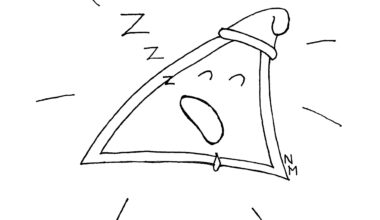Let’s put our existence into perspective. Let’s go wide. On a cosmological scale.
If entropy is correct, the universe is doomed. Us and everything in it. Not for a very very long time, but eventually. We may find the finitude of our life, species, and universe difficult to fathom, yet in the long run they are all equally destined. If this is the universe’s fate, perhaps it can inspire us to find meaning in it.
Entropy is often described as a measurement of disorder. Or better, the tendency of energy to spread out. The Sun gives us the extra energy we need to counter this spread on Earth, but the Sun will eventually perish, as will every other star in the universe. And then, when the universe has reached its highest entropy, there will be nothing left but a vast, cold, empty space. This is known as the ‘heat death of the universe’.
There is nothing we can do about it. According to the second law of thermodynamics, the amount of usable energy in a closed system is always decreasing, and the universe is a closed system (as far as we can imagine). However, for the many trillions of years that the universe still has usable heat, and for the fraction of that time that humanity is still around, we can order the world around us.
Life organises disordered matter into structured matter. Molecules become cells. Cells become organisms and species, and here we are now as mammals, able to maintain life and fend off decay. All life creates order from disorder (while life can be sustained). This function of life on a cosmic scale mirrors our personal journeys through life on a micro scale.
Battling entropy is the task of daily life. We must do it every day throughout our lives. Biologically, we need to keep ourselves alive. Emotionally, we need to maintain our relationships. For shelter, we need to repair the cracks in our homes. Without our involvement, it all falls apart.
The struggle is not a bug, it is a feature. It is the very purpose of our existence. Order will never arise out of disorder without our input. Seen through this lens we might assume life’s tribulations with a lighter heart simply because deterioration is inevitable. Lemons and lemonade.
Humanism as a school of thought places mankind front and centre without neglecting regard for other creatures. Human well-being in general, and our own well-being in particular, is the focus of life’s meaning. From our own personal perspective, nothing can be more essential than our own lives. Placing such importance on ourselves can easily lead to existential angst. But, by just flipping to a cosmological perspective, the angst dissipates as our own importance fades against the canvas of the cosmos. Our personal existence is limited, and so is the existence of everyone else in the entire universe. We all share this fate. It’s just a matter of time.
The allure of the world’s monotheisms lies in the promise of an eternal life. Not just a few more years, but perpetuity. Such a leap of faith must imagine a realm outside our universe because eternity is not an option within it.
Philosophical absurdism takes the stance that the inescapability of death makes a mockery of imbuing life with meaning. However, this position seems itself absurd. The finitude of experience does not rob the meaning of the experience. The show cannot go on, but it might still deserve a standing ovation.
Our resistance against entropy is ultimately futile, but it is at the heart of life’s purpose. When we let go of any hope of eternity, we can grasp that our time is now.
Related reading
From stardust to sentience: How scientific literacy can improve your ability to foster gratitude, by Mohadesa Najumi
Reincarnation, secular style, by Nathan Alexander
Consciousness, free will and meaning in a Darwinian universe: interview with Daniel C. Dennett, by Daniel James Sharp
‘The Genetic Book of the Dead’: A Dawkinsian Medley, by Daniel James Sharp








Your email address will not be published. Comments are subject to our Community Guidelines. Required fields are marked *
Donate